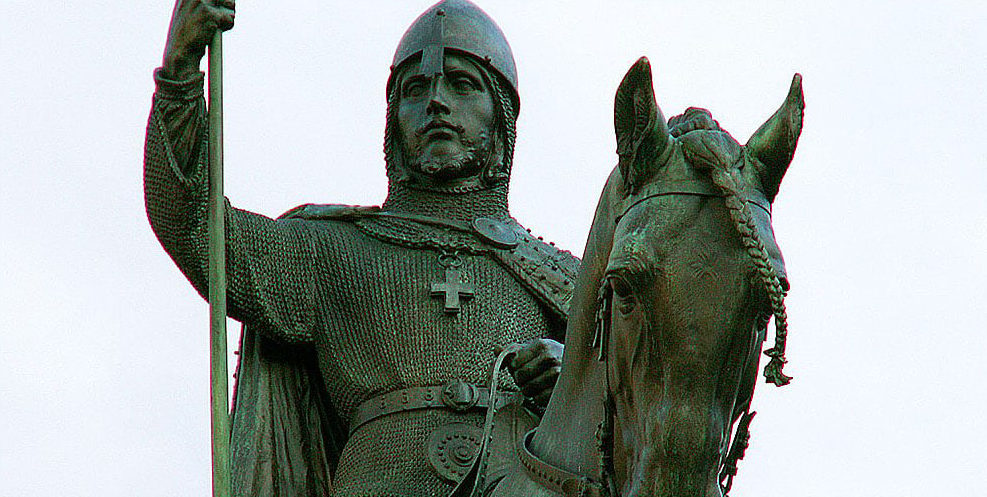I have always loved the carol ‘Good King Wenceslas’, written in 1853 by JM Neale, ever since we learned to sing it in assembly under the stern but effective tutelage of Mrs Green. All the same, for a long time, it did not occur to me to wonder about the identity of this King Wenceslas fellow, and why he was looking out on the Feast of Stephen — or Boxing Day, as it is better known nowadays. The precise location of his philanthropic adventures with page, pine logs, flesh and wine was similarly a mystery.
Many years later, I found out about the real-life Wenceslaus, a tenth century Duke of Bohemia and one of the first Christian rulers of that ancient and fascinating place. His appearance in a carol written by an Englishman 1,000 years after his death is not as surprising as it first appears. It seems that he was already being venerated as a saint in England in the early mediaeval period, and legends of his charity and piety were widely known throughout Europe in the Middle Ages.
For the British imagination, Central and Eastern Europe has traditionally been alien, the site of baffling and interminable political struggles, or the backdrop to swashbuckling yarns like The Prisoner Of Zenda. That book even gave us the word “Ruritanian” to describe romantic and colourful tales set in fictitious or heavily fictionalised nations. From the late Victorian era Mitteleuropa, with its labyrinthine politics and regular turmoil, became a reliable source of villainy and intrigue for thriller writers.
In 1938, Neville Chamberlain gave voice to this mindset when he memorably described the Sudetenland crisis — in which the Nazis threatened to invade much of Bohemia — as a “quarrel in a faraway country, between people of whom we know nothing”. In geographical terms this is a dubious statement: the distance from Dover to the German-Czech border is substantially less than the distance from Dover to the south of France. Psychologically and culturally, he was on to something.
However, it’s complicated. There is in fact a long history of trade, movement and cultural exchange between Britain and those faraway lands. The fact that there was an English cult of St. Wenceslaus long before the Norman Conquest is early evidence of such cross-fertilisation. British participants in the Crusades often took an easterly, overland route to and from the Levant, via what is now Austria and Hungary, expanding knowledge of those places among the governing classes. Richard the Lionheart, symbol of English chivalry, was notably imprisoned in Dürnstein Castle in north-east Austria.
Jan Hus, the Bohemian proto-Protestant burned for heresy in 1415, was heavily influenced by the writings of the early English dissident John Wycliffe, while Elizabeth Stuart, the sister of Charles I, was briefly Queen of Bohemia from 1619-20. Small communities of Polish merchants were a feature of British port towns as early as the Elizabethan era, and by the dawn of the twentieth century Poles were our second largest immigrant group, after the Irish.
The early modern period saw substantial Scottish settlement in the Baltic, and Scottish mercenaries were a frequent fixture in the wars of the Polish-Lithuanian Commonwealth (1569-1795) and its enemies. One of the most effective and celebrated Russian commanders in the Napoleonic Wars, Field Marshal Barclay de Tolly, was descended from Caledonian settlers in the German-speaking Baltic.
It’s easy to forget that cosmopolitanism is not a modern invention. And in the season of goodwill to all men, it’s worth remembering that many of our ancestors were just as curious, and knowledgeable, about the world beyond their borders as we are today.











Join the discussion
Join like minded readers that support our journalism by becoming a paid subscriber
To join the discussion in the comments, become a paid subscriber.
Join like minded readers that support our journalism, read unlimited articles and enjoy other subscriber-only benefits.
Subscribe